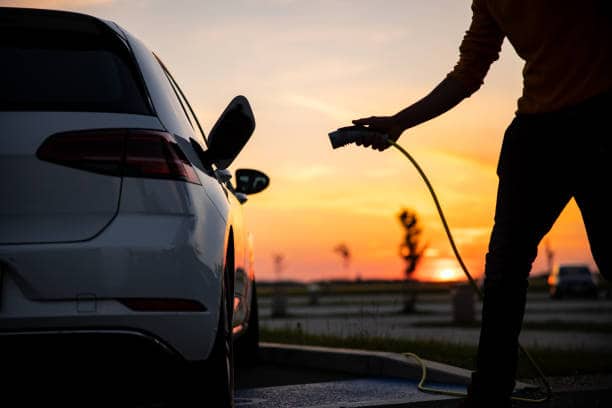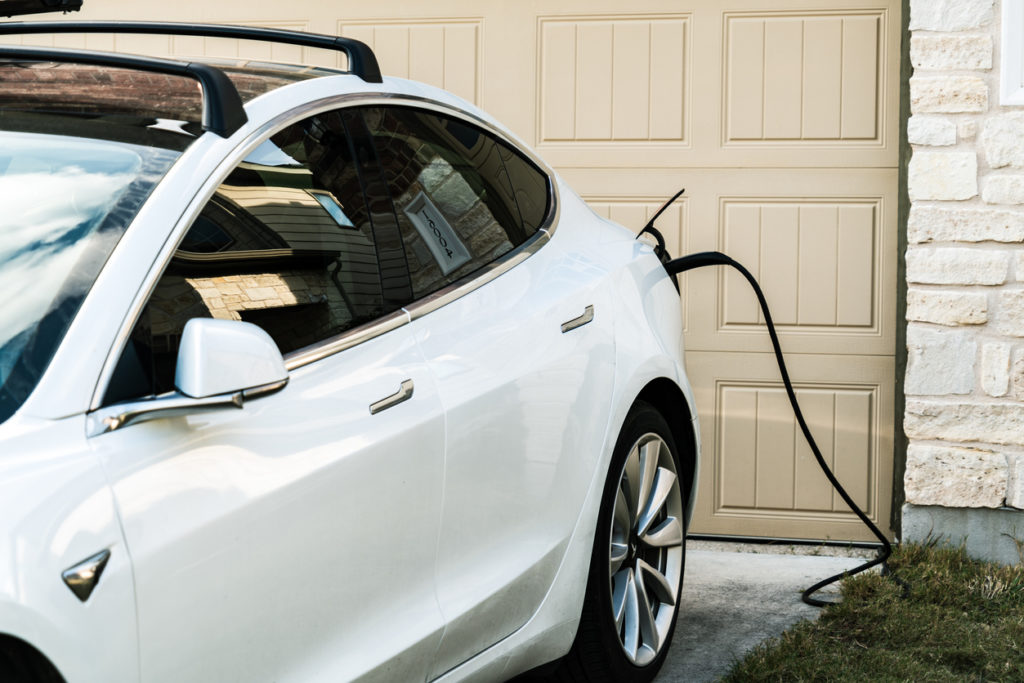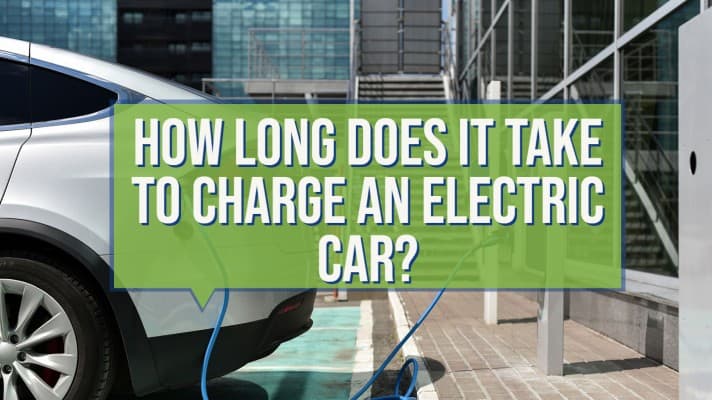This is a question many people have asked themselves. More often than not, it’s a big concern for people considering purchasing an electric vehicle in the future. While it’s true that the charging time for an electric vehicle is generally longer than refuelling a petrol or diesel car, the benefits of going electric are well worth it in the long run. Electric cars are better for the environment and save you money in the long run by being more efficient and requiring less maintenance.
So, how long does it actually take to charge an electric car? Let’s take a closer look at the factors that affect charging time and explore some strategies for charging your electric vehicle more efficiently.

How Long Does It Take To Fully Charge Electric Cars?
The answer to this question will depend on various different factors, including the type of electric car you have, the power output and the charger used. However, on average, it will take anywhere from 3-8 hours to fully charge an electric car’s battery.
For example, if you’re using a Level 2 charger (240V) it will take 3-4 hours to charge a 24kWh battery. Whereas if you’re using a Level 1 charger, (120V) it’ll take about 8 hours to charge the same battery. As a general rule, the time it takes to charge an electric car can be reduced by using a faster charger, but this often comes with an increased cost. The Tesla rapid charger can charge a Tesla Model S in about an hour, but it costs significantly more than a Level 2 charger.
We’d recommend having a home charging point installed, as this is an affordable way to charge your car overnight. Reduce your waiting time, and keep your electric car’s battery range full.
What Factors Can Affect Charging Speed?
Many things can impact how long your car will take to charge. Here are some of the most common factors:
Type Of Car:
Different cars have different battery sizes. For example, a Tesla Model S has a much larger battery than a Nissan Leaf. Hence, it will take longer to charge.
Type Of Charger
Level 1 chargers (120V) are slower than Level 2 chargers (240V).
Power Source
If you are using a 110V outlet, it will take longer to charge than if you are using a 220V outlet. Investing in rapid chargers may be a bit more expensive, but they’re much quicker than slow-charging home points.
Amperage
Higher amperage chargers will charge your car faster than lower amperage chargers.
Temperature
Cold weather can impact the charging time of your car. Electric cars use lithium-ion batteries –that work when lithium ions move from the anode to the cathode. This charges the car, but the cold slows this process down, therefore restricting battery performance.
Existing Charge
If your car already has some existing charge, this will be much quicker to charge than if it was flat.
As you can see, even if you use a standard household outlet or rapid charging points, various factors will still affect charging speed. However, with a good overnight charge, you’ll still have a full day’s range of average distance without the need for top-up charging.

How Long Does It Take To Charge An Electric Car At Home?
The time it takes to charge an electric car at home will depend on a few factors, including the power of your charger and the amount of charge left in your car.
If you are using a Level 1 charger (120V), it will take about 8 hours to charge a 24 kWh battery. If you are using a Level 2 charger (240V), it will take about 3-4 hours to charge the same battery.
Most people charge their car overnight to avoid being caught out.
How Long Does Charging An Electric Car At Public Charging Points Take?
Charging points can be found all over cities and towns these days. On-the-go chargers are an excellent way to top up while you stop for lunch or work, as they are much faster than home chargers.
Public charging points come in various speeds, from 3kW to 22kW. The average time to charge an electric car at one of these points is about 30 minutes. However, it is important to remember that not all cars can charge at the same speed. Again, larger batteries take longer to charge. For example, this means that it would take a Tesla Model S 10 times longer to charge at a 3kW charger than it would at a 120kW charger.
What Are Fast Charging Points?
Fast charging points are becoming increasingly popular as they can charge an electric car in a fraction of the time of a normal charger. These chargers, also known as rapid chargers, usually have a power output of 50kW or more and can charge a car from 0 to 80% in 30 minutes.
Tesla Superchargers: What Are They?
Similar to rapid chargers, Tesla superchargers are some of the fastest chargers currently available. They have a power output of 120kW and can charge a Tesla Model S from 0 to 80% in just an hour. There are over 10,000 Tesla superchargers worldwide, making it easy to find one when you need it.
Can An Electric Vehicle Travel As Far As A Petrol Vehicle?
Electric cars have come a long way in recent years. However, they still have some way to go before they can match the range of petrol cars.
Most electric cars can travel between 100 and 200 miles on a single charge. This is enough for most people’s daily commute but may not be enough for a long journey. Some can even go up to 300 miles when fully charged due to increased battery size. At the same time, the average petrol car can travel over 300 miles on a single fuel tank.
You may need to stop more often to charge your electric car on a long journey. However, this is not necessarily a bad thing, as it gives you an opportunity to take a break! As long as your plan a long-range journey beforehand, this will not be a problem.

How Much Does It Cost to Charge An Electric Car?
The cost of charging an electric car will depend on the current electricity price. In the UK, it costs about £8 to charge a 24 kWh battery. This works out at around 3 pence per mile. In contrast, it costs about 12 pence per mile to run a petrol car. So, you’re saving some money by making the switch to electric!
What Are The Environmental Benefits of Driving an Electric Car?
Let’s explore just a few of the many benefits of making the switch to an electric car:
Electric cars produce zero emissions, so they are much better for the environment than petrol or diesel cars. Long-term, this will help to reduce air pollution and produce zero greenhouse gases. A reduction in greenhouse gases will be revolutionary to help with climate change.
Electric cars also have other environmental benefits. For example, they are much quieter than petrol or diesel cars. This means that they can help to reduce noise pollution in built-up areas.
The Other Benefits of Having an Electric Vehicle
Electric vehicles have many benefits over petrol or diesel cars.
They are cheaper to run, better for the environment and quieter. They also have the potential to reduce congestion and improve air quality in built-up areas.
However, electric cars still have some way to go before they are perfect. For example, their range is currently shorter than that of petrol cars.
But as battery technology improves, it is likely that electric cars will become increasingly popular in the coming years. Got some other questions, such as, are electric cars green? How far can electric cars go? Then check out our blog for more info on electric cars.
Can You Charge an Electric Car Based on The Distance You Need to Travel?
The answer to this question is both yes and no. Yes, you can charge an electric car based on the distance you need to travel—but only if the car has a range that is sufficient for your needs. A good way to determine this is by checking the car’s EPA-estimated range. If that range matches up with or exceeds your required distance, then you can go ahead and charge the car in advance to cover the entire journey.
However, if your car’s range doesn’t meet your needs, then you’ll need to plan for charging stops along the way. This is particularly true if you are travelling a long distance or intend to make multiple trips over a short period of time. Fortunately, there are many public charging stations that you can use to top off your battery as needed.
We hope that this blog has been helpful in answering how long it takes to charge an electric car. If you have any more questions, please don’t hesitate to get in touch with our customer service team here at Fleet Evolution!
Found this article interesting? See more electric car articles below:
• What Is An Electric Car: How Do They Work?
• What Does It Cost To Charge An Electric Car?
Electric Car Charging FAQs:
We’ve answered some of the most frequently asked questions about electric car charging below:
How long does it take to charge an electric car at a charging station?
It depends on the charger you’re using and the battery size in your car. The fastest charger is a Tesla Rapid charger that can charge your car in an hour. Slower chargers will take between 2-4 for a full charge. Home chargers, on average, will take 6+.
Is it free to charge an electric car?
In most cases, no, however, it is still significantly cheaper than petrol or diesel. You’ll have to pay for home chargers, chargers at service stations and other ones out and about. However, some workplaces offer charging schemes where you can charge your car for free. It is important to ask if this is possible, as it can be a great way to keep your car battery charging while you work.
How far can an electric car go on a full charge?
An electric car can go 250 miles on a full charge (this is an average and will vary depending on the make of your car).
How long do electric car batteries last?
Electric car batteries are predicted to last from 10 – 20 years before they need to be replaced.

